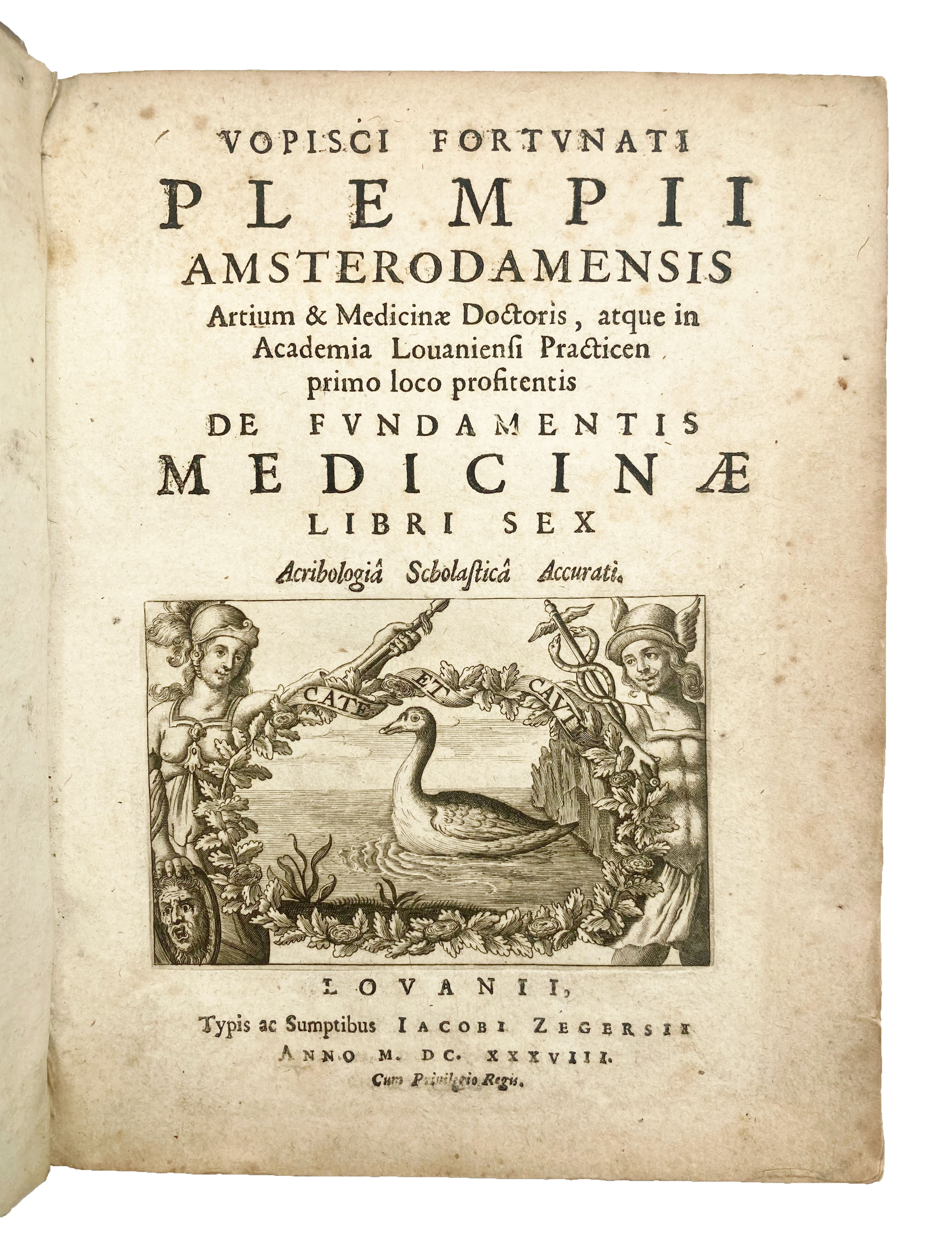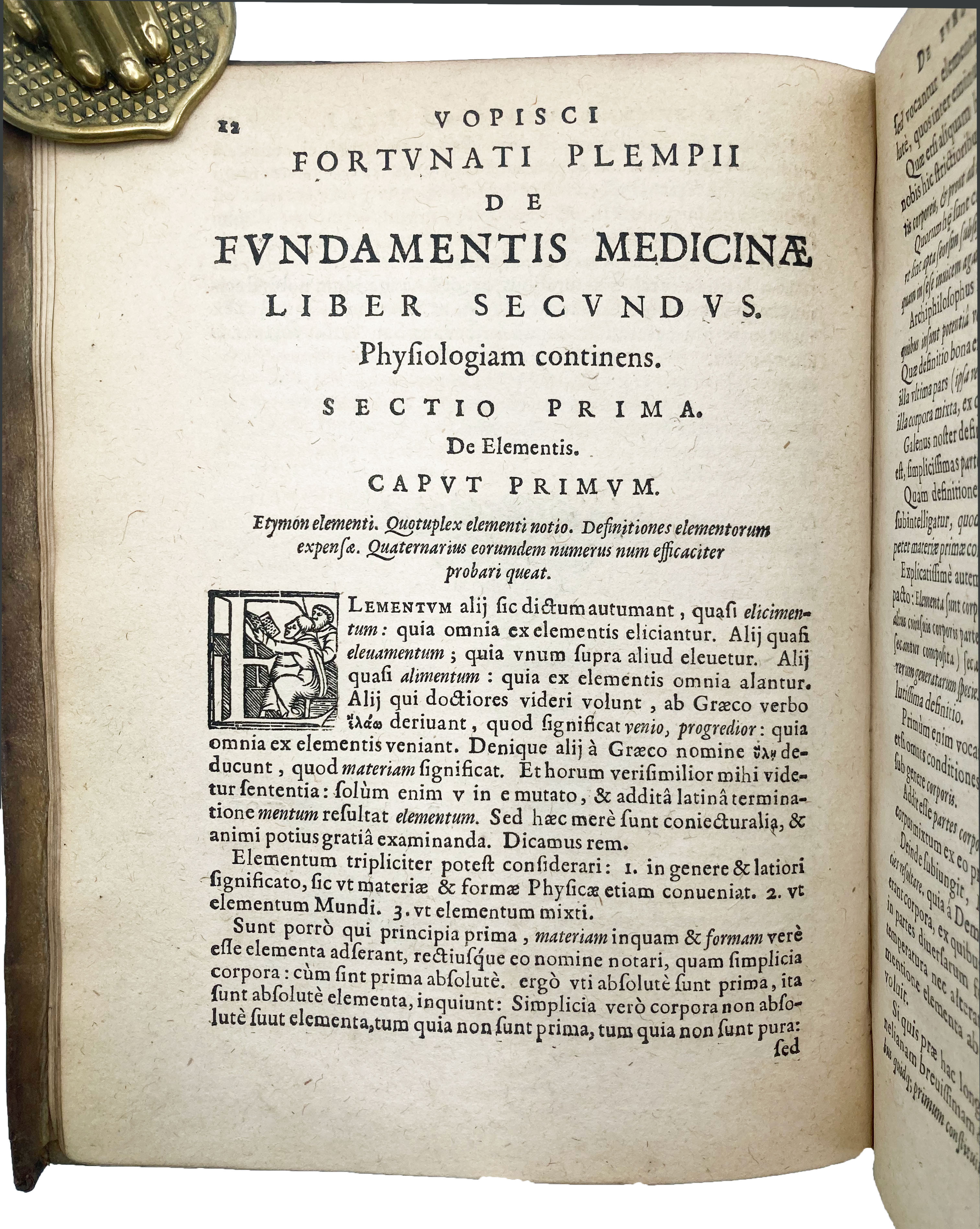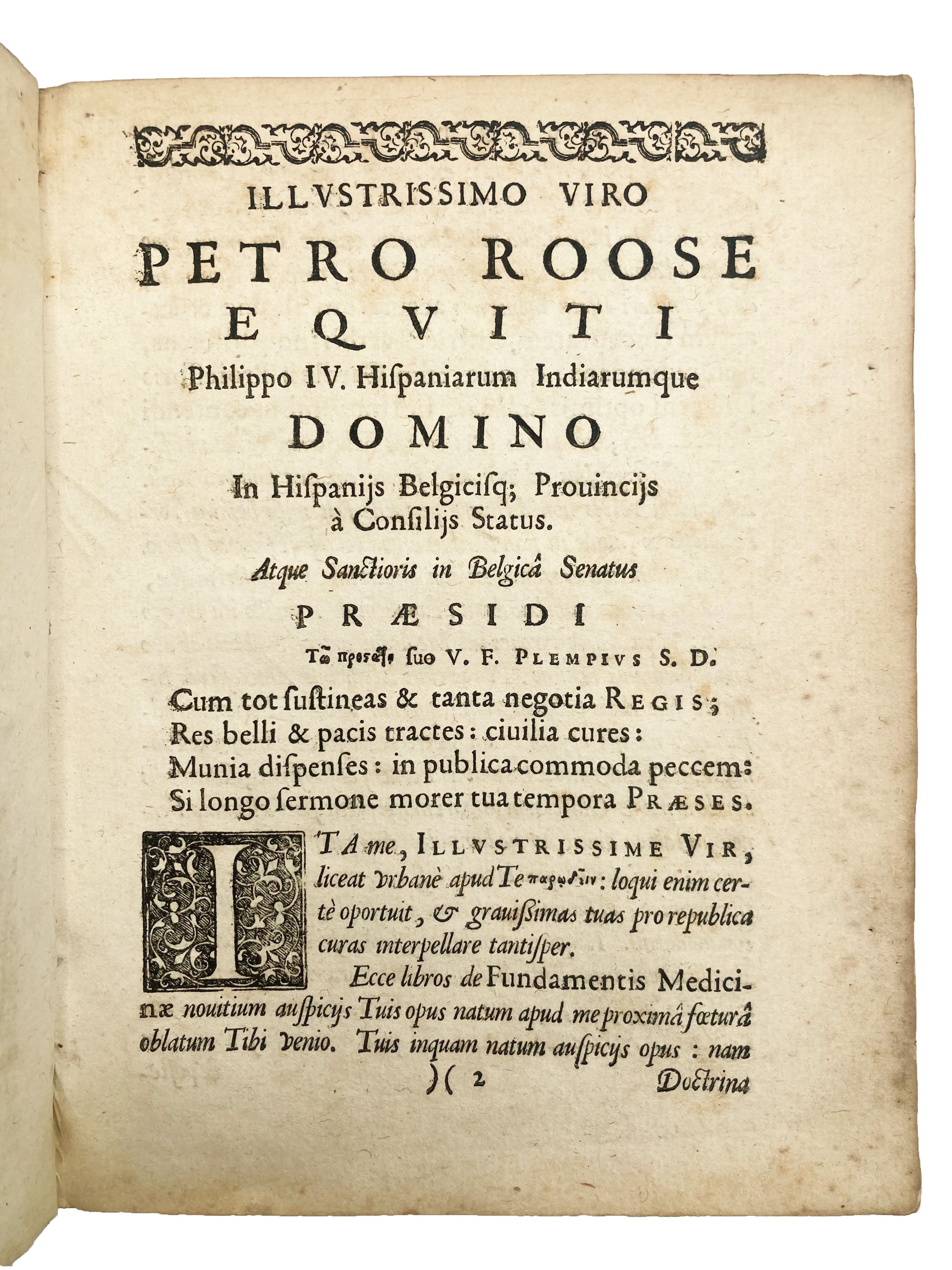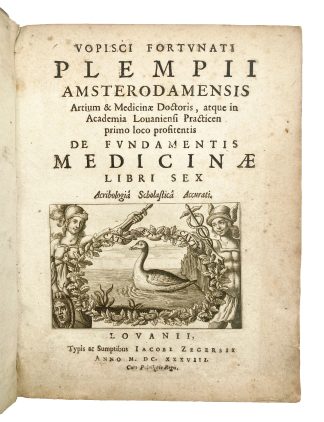PLEMPIUS, Vopiscus Fortunatus.
CRITICISM OF CARTESIAN IDEAS
De Fundamentis medicinae.
Louvain, Jacob Zegers, 1638.£1,950.00
FIRST EDITION? 4to. pp. [8], 525, [25]. Roman letter, little Italic. Engraved title vignette, decorated initials and ornaments. Light browning, minor marginal foxing, light marginal ink splash to Dd3-4. A good copy in contemporary vellum, yapp edges, early title to spine.
A very interesting compendium for medical students, important work in the mid-C17 debates on Descartes’ ideas on physiology. Vopiscus Fortunatus Plempius (1601-71) was a Dutch physician, who also translated from the Arabic texts of Avicenna. Living in Amsterdam (1629-32), he often visited Descartes, with whom he entertained a long debate, after the publication of ‘Discours de la méthode’, particularly on blood circulation (Ariew, pp.208-9). A published version of Plemp’s university course at Louvain, ‘De Fundamentis’ begins with an introduction to the definition of medicine, and whether it be an art or science, and what its purpose is, proceeding to the elements, humours, and their properties, age and how it influences illnesses and prognosis, and then various parts of the body (e.g., brain, spinal cord, nerves, lungs, blood vessels, etc.), the vital faculties, what the function of an organ is, the regimen sanitatis, the nature of illnesses, contagion, primary and secondary conditions, causes, symptoms, and treatments, uses of the pulse and urine for diagnostic purposes. However, what makes this work quite famous is that it includes abstracts from Plemp’s correspondence with Descartes, and, after its publication, the two fell out. ‘Later when Henricus Regius, who already possessed copies of the exchange between Plemp and Descartes, brought the book to the latter’s attention and pointed out that Plemp had ‘mutilated’ Descartes’ answers—a claim he repeated in a disputation on the circulation of the blood on 10 June 1640. Plemp reacted by reprinting the entire correspondence in the second edition of his book (1644), adding a few personal remarks on Regius and Descartes. Descartes in turn offered his copies of the correspondence to Johan van Beverwijck, allowing him to publish the full text in his “Epistolicae quaestiones” (1644)’ (Verbeek, p.288).
USTC records two eds published the same year.
Only Yale copy recorded in the US. USTC 1511367. Not in Wellcome, Krivatsy, Osler or Heirs of Hippocrates. R. Ariew, ed., The A to Z of Descartes and Cartesian Philosophy (2010); T. Verbeek, et al., The Correspondence of Rene Descartes 1643 (2003).




